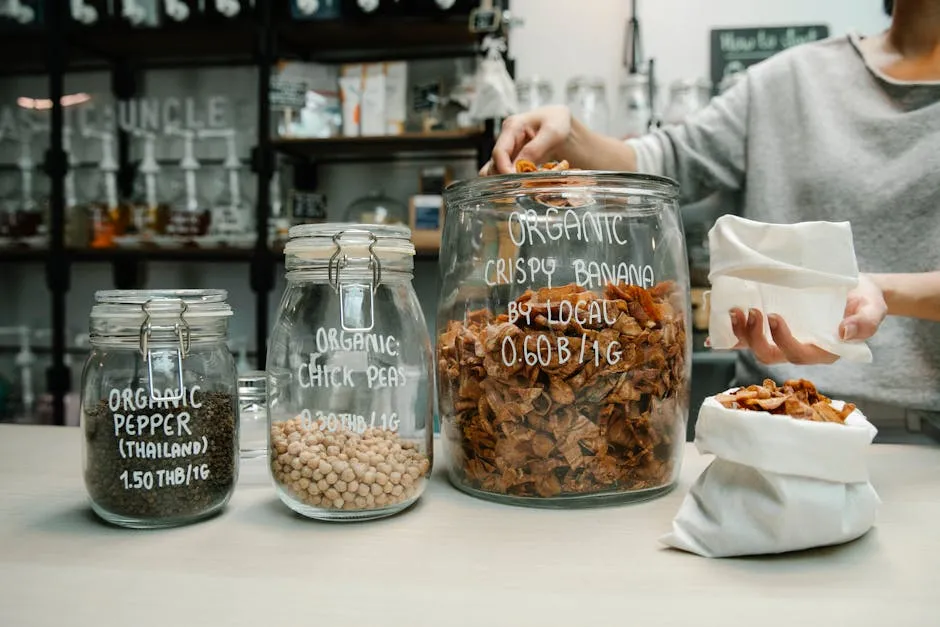
Why Am I So Gassy? Understanding the Causes, Effects, and Solutions
Introduction
In a world where we often find ourselves navigating social minefields, few topics are as universally awkward yet rarely discussed as flatulence. We all experience it, yet “Why am I so gassy?” is a question many shy away from asking. If you’ve ever found yourself in a room full of people, only to feel the pressure building in your stomach, you’re not alone. Gas is a normal byproduct of digestion, but when it becomes excessive, it can lead to discomfort and embarrassment.
So, what causes all this gas? It’s time to break the silence and get to the bottom of it (pun intended). Gas forms when bacteria in the gut break down food, creating various gases as a result. The average person passes gas around 14 to 23 times a day, which might seem like a lot, but it’s a perfectly normal part of life. However, when you find yourself feeling like a balloon ready to pop, it’s worth investigating what’s going on.
Excessive gas can arise from a variety of factors, including your diet, how quickly you eat, and even certain medical conditions. Foods high in fiber, such as beans, lentils, and even certain vegetables, can contribute to gas production. Moreover, food intolerances, particularly to lactose or gluten, can lead to extra gas that leaves you feeling bloated and uncomfortable.
In this comprehensive guide, we’ll shed light on the reasons behind excessive gas, its common symptoms, dietary triggers, and practical solutions to help you reclaim your comfort and confidence. So, let’s embark on this enlightening exploration of that pesky phenomenon known as flatulence. With a little humor and curiosity, we’ll tackle the reasons behind your gassy woes and arm you with the knowledge to take charge of your digestive health. Get ready to learn, laugh, and maybe even share this article with a friend who could use a giggle or two!

Summary Section
Gas, a natural byproduct of digestion, can be both a source of amusement and distress. While the average person passes gas about 14 to 23 times a day, an increase in frequency or discomfort may signal an underlying issue. This article will explore the various causes of excessive gas, including dietary factors like high-fiber foods, lactose intolerance, and artificial sweeteners.
An important aspect to consider is the role of gut bacteria. These tiny organisms break down undigested food, producing gases like hydrogen, methane, and carbon dioxide. While this process is essential for digestion, it can sometimes go awry. Certain foods, especially those rich in fiber or hard-to-digest sugars, can lead to increased gas production.
Another culprit is aerophagia, or swallowing air, which can happen while eating quickly, chewing gum, or even talking. It’s a sneaky way gas can accumulate without you even realizing it. Additionally, medical conditions such as Irritable Bowel Syndrome (IBS) or celiac disease can exacerbate gas production.
Understanding these triggers can help you identify what might be causing your discomfort. By keeping a food diary, you can track your intake and pinpoint any problematic foods. This proactive approach allows for dietary adjustments that can significantly reduce gas. Speaking of tracking, why not keep a Food Diary Notebook? It might just be the key to your gas-free life!
Moreover, we’ll offer practical strategies for managing gas, including dietary changes, lifestyle adjustments, and when to seek medical advice. By the end of this guide, you’ll have a clearer understanding of why you might feel gassy and what you can do to alleviate the discomfort. You’ll be equipped with tools to enjoy life without the fear of an embarrassing moment. So, let’s dive into the nitty-gritty of flatulence, arming you with knowledge and a little humor along the way!
Understanding Gas and Flatulence
Gas is a natural byproduct of our digestive system. When you munch on food, your body doesn’t just turn it into energy; it also generates gas. This occurs mainly when gut bacteria break down food that your stomach and intestines haven’t fully digested. The bacteria feast on these leftovers, producing gases like hydrogen, methane, and carbon dioxide in the process. The average person produces about half a liter of gas daily, which is expelled through belching or flatulence. While it may sound funny, this gas can lead to discomfort if too much accumulates in your system.
But how much is too much? Generally, passing gas around 14 to 23 times a day is considered normal. Common symptoms of gas include bloating, abdominal discomfort, and the unmistakable urge to let it rip. You might feel like a human balloon at times, especially after a big meal. If you’re feeling particularly gassy, it could be a clue that something in your diet isn’t sitting well with your digestive system.

Causes of Excessive Gas
Excessive gas can stem from various sources, and dietary factors play a significant role. Certain foods are notorious for causing gas. High-fiber foods, while great for your health, can overwhelm your system if you suddenly increase your intake. Beans, lentils, broccoli, and onions are common culprits. These foods contain complex sugars that can be tough for some people to digest, leading to extra gas production.
Lactose intolerance is another factor that can contribute to excessive gas. If you lack the enzyme needed to break down lactose, the sugar found in dairy products, you may experience bloating and gas after indulging in cheese or ice cream. Gluten intolerance, particularly in those with celiac disease, can also lead to painful gas. For individuals with these intolerances, even small amounts of lactose or gluten can wreak havoc on their digestive systems.
Sugar alcohols, often found in sugar-free foods, are another sneaky source of gas. These sweeteners, like sorbitol and xylitol, can ferment in the intestines, leading to bloating and discomfort. If you’ve been munching on a lot of sugar-free gum or snacks, you might want to check the ingredients label. Consider switching to Sugar-Free Gum that’s easier on your system!
Swallowed air contributes to gas, too. You might not realize it, but habits like eating or drinking too quickly, chewing gum, or talking while eating can introduce excess air into your system. This can lead to that uncomfortable feeling of fullness.
Medical conditions can exacerbate gas production. Disorders like Irritable Bowel Syndrome (IBS) and Celiac disease affect how your body processes food, leading to increased gas. Constipation can also worsen the situation, as backed-up waste can ferment and create more gas.
Understanding these triggers is essential. By being mindful of your diet and habits, you can identify what may be causing your discomfort. Keeping a food diary can help track what you eat and how it affects your gas levels. This way, you can make informed decisions about what to include or exclude from your meals.
In the next section, we’ll discuss practical strategies for managing gas, including dietary adjustments and lifestyle changes. You’ll be equipped with tips to help you navigate your gassy days with more confidence and less discomfort. Let’s tackle those gassy moments head-on!
Sugar Alcohols
Sugar substitutes, like sorbitol and xylitol, are sneaky culprits behind that extra gas you’re feeling. These sugar alcohols are often found in sugar-free gum, candies, and even some baked goods. While they may help your sweet tooth without the added calories, your digestive system might not be so fond of them.
These sweeteners are only partially absorbed in the intestines. When they reach the colon, the friendly bacteria there feast on them, producing gas as a byproduct. This fermentation process can lead to bloating, cramping, and, of course, flatulence. If you’re loading up on sugar-free goodies, you might want to consider moderating your intake. Your stomach—and those around you—might thank you later!

Swallowed Air
Aerophagia
Have you ever caught yourself gulping down your food? Or maybe you chew gum while chatting? These habits can lead to a not-so-fun phenomenon called aerophagia, or swallowing air. This excess air can accumulate in your stomach and intestines, resulting in discomfort and gas.
Eating too quickly is a prime suspect. When you rush through your meals, you’re likely swallowing more air than food. The same goes for carbonated beverages; those fizzy bubbles can add to your gas levels. Chewing gum or sucking on hard candy can also introduce extra air into your digestive system. So, if you want to keep the gas at bay, try slowing down during meals and opting for flat drinks. Your digestive tract might just breathe a sigh of relief!

Medical Conditions
Digestive Disorders
If you’re still wondering, “Why am I so gassy?” it might be time to consider underlying medical conditions. Digestive disorders like Irritable Bowel Syndrome (IBS) and Celiac disease can significantly increase gas production.
With IBS, your digestive system becomes sensitive to various foods, leading to bloating and excessive gas. Celiac disease, on the other hand, is an autoimmune disorder where gluten intake triggers an immune response, causing gas and other digestive woes. Other culprits include diverticulitis and Crohn’s disease, which can lead to inflammation and irregular digestion, further exacerbating gas buildup. If you suspect a digestive disorder, it’s wise to consult a healthcare provider.
Constipation
Constipation is another sneaky factor that can contribute to gas. When your digestion slows down, food can sit in your intestines longer than it should. This extended time allows bacteria to ferment undigested food, producing additional gas.
If you’re feeling backed up, you might notice an uptick in gas and bloating. Staying hydrated and consuming enough fiber can help keep things moving. Incorporating fruits, vegetables, and whole grains into your diet can work wonders for promoting regularity. So, if you’re feeling gassy, check in with your digestive habits—your gut will appreciate it! And why not stay hydrated with a Water Bottle with Infuser? It’s a refreshing way to keep your hydration game strong!

Management Strategies
Dietary Adjustments
Keeping track of what you eat can be a game changer. A food diary helps identify triggers that lead to gas. Write down everything you consume and note when gas occurs. This simple practice can unveil patterns and help you pinpoint the foods that don’t agree with your system.
Consider trying the Low FODMAP Diet, which has gained popularity for its effectiveness in managing gas. This diet involves temporarily eliminating high-FODMAP foods—those that are rich in fermentable sugars—such as certain fruits, vegetables, and dairy. Slowly reintroducing these foods can help identify specific triggers. A Digestive Health Cookbook can provide delicious recipes that align with this approach!
Lifestyle Changes
Let’s talk about your eating habits. Eating slowly and chewing thoroughly can make a world of difference. When you take your time, you’re less likely to swallow air. Staying hydrated is equally important, as it aids digestion and can help prevent constipation.
Regular exercise also plays a role in keeping your digestive system happy. Moving your body helps stimulate the intestines and can reduce gas buildup. So, whether it’s a brisk walk, yoga, or dancing like no one’s watching, find an activity you enjoy and make it part of your routine. And if you’re looking for some fun workout gear, consider getting a set of Resistance Bands to spice up your fitness routine!
By implementing these dietary adjustments and lifestyle changes, you can take charge of your gassy situation. With a bit of patience and self-awareness, you’ll likely find relief and enjoy your meals without the worry of excessive gas!

Regular Exercise
Let’s get one thing clear: your body loves movement! Regular exercise is not just about fitting into those jeans; it plays a crucial role in digestion too. When you get your heart pumping, everything down there gets a little pep in its step.
Why does exercise help? Well, physical activity encourages the muscles in your intestines to work more efficiently. Think of it as giving your digestive system a gentle nudge to keep things moving. You know that sluggish feeling after a heavy meal? A brisk walk can help shake things up and reduce the buildup of gas.
Plus, exercise can help prevent constipation, a notorious gas offender. When your bowels are moving regularly, there’s less time for gas to accumulate and cause discomfort. So, whether you prefer jogging, dancing, or even a casual stroll, getting active can be a game changer for your digestive health.
And let’s not forget about the mental boost! Exercise releases endorphins, the feel-good hormones. When you feel good, your body tends to function better—gas included. So, lace up those sneakers and get moving. Your gut will thank you for it! A Yoga Mat can also be a great addition to your routine, whether you’re doing yoga or just stretching!

Over-the-Counter Remedies and Treatments
Medications
When it comes to tackling that pesky gas, over-the-counter (OTC) medications can be your new best friend. Products like Simethicone Gas Relief Tablets are designed to reduce bloating and discomfort by breaking up gas bubbles in your digestive tract. Think of it as a tiny superhero swooping in to save the day from the villainous gas buildup.
Another popular option is Beano, which contains an enzyme that helps break down hard-to-digest carbohydrates found in many gas-producing foods. If you know you’re diving into a bean feast, a quick dose of Beano can save you from the gassy aftermath.
These medications are generally safe and can provide quick relief from excessive flatulence, letting you enjoy life without the worry of embarrassing moments. Just remember to read the labels and consult with a healthcare professional if you have any concerns about interactions or proper dosages.
Natural Remedies
If you prefer a more natural approach, herbal teas and probiotics might be the way to go. Peppermint tea is a classic choice, known for its soothing properties. It can help relax your digestive tract and alleviate gas. Ginger tea is another great option, as ginger is known to aid digestion and reduce bloating.
Probiotics are also gaining popularity for their gut health benefits. These friendly bacteria can help balance your gut microbiome, improving digestion and potentially reducing gas. You can find probiotics in yogurt, kefir, and various supplements. If you’re looking for a convenient option, check out Probiotic Supplements that can easily fit into your daily routine!
Incorporating these natural remedies can be a gentle way to manage your gassy troubles. Just be sure to give your body time to adjust, as sometimes it takes a little while for these remedies to work their magic.

When to See a Doctor
Red Flag Symptoms
While gas is totally normal, certain symptoms may signal it’s time to call in the pros. If you experience severe abdominal pain that makes you feel like you’re auditioning for a dramatic soap opera, it’s time to seek medical attention. Weight loss that comes uninvited is another red flag—your scale shouldn’t be dropping without a reason. And blood in your stool? Well, that’s a definite “get to the doctor ASAP” situation.
Frequent diarrhea or constipation can also indicate an underlying issue. If you’re experiencing these alongside gas, don’t brush it off. Your body is trying to tell you something!
Diagnostic Approaches
When you visit your healthcare provider about excessive gas, they’ll likely ask about your symptoms and eating habits. Keeping a food diary can help them spot patterns. Tests may include blood tests to check for food intolerances, breath tests to diagnose conditions like lactose intolerance or small intestinal bacterial overgrowth, and imaging studies to get a closer look at your digestive system.
In some cases, more invasive tests like a colonoscopy may be necessary to rule out serious conditions. While it may sound daunting, these tests are essential for getting to the root of your gassy woes. Remember, it’s always better to be safe than sorry when it comes to your health.

Conclusion
In conclusion, while gas is a natural part of digestion, excessive flatulence can signal dietary issues or underlying health conditions that deserve attention. By understanding the causes and implementing effective management strategies, you can minimize discomfort and regain control over your digestive health.
Start by tracking your diet and recognizing which foods trigger your gas. Remember to incorporate regular exercise into your routine, as it can significantly improve digestion. Over-the-counter remedies can also offer quick relief when you need it most. Try keeping a Digital Kitchen Timer to manage your cooking times and help you eat more mindfully!
If excessive gas becomes a constant companion, don’t hesitate to consult a healthcare professional. They can help identify any underlying issues and guide you towards a more comfortable life. Remember, everyone farts; it’s how we handle it that counts! So, embrace your digestive journey with humor and knowledge, and you’ll be well on your way to a happier gut. And don’t forget to enjoy a Herbal Tea Assortment for some soothing relief!

FAQs
Why am I passing so much gas all of a sudden?
Sudden increases in gas may result from dietary changes or food intolerances. Maybe you’ve recently switched to a high-fiber diet or discovered a love for beans—both can wreak havoc on your digestive system! Keep an eye on what you eat, and consider keeping a food diary to track your triggers.
Is it unhealthy to pass a lot of gas?
While passing gas is normal, excessive gas can indicate an underlying health condition. Conditions like Irritable Bowel Syndrome (IBS) or lactose intolerance can lead to painful gas. If you notice significant changes in your gas patterns, it might be time to consult a healthcare professional.
What foods should I avoid to reduce gas?
Limiting high-fiber foods, dairy, and sugar alcohols may help reduce gas. Foods like beans, broccoli, and certain whole grains are notorious for causing extra gas. If you’re lactose intolerant, dairy products can also be your enemy. Pay attention to how your body reacts to different foods.
When should I seek medical help for gas?
If you experience persistent symptoms, such as abdominal pain or changes in bowel habits, consult a doctor. Red flags include severe pain, unexplained weight loss, or blood in your stool. Don’t ignore your symptoms; your body is trying to tell you something!
Please let us know what you think about our content by leaving a comment down below!
Thank you for reading till here 🙂
All images from Pexels




